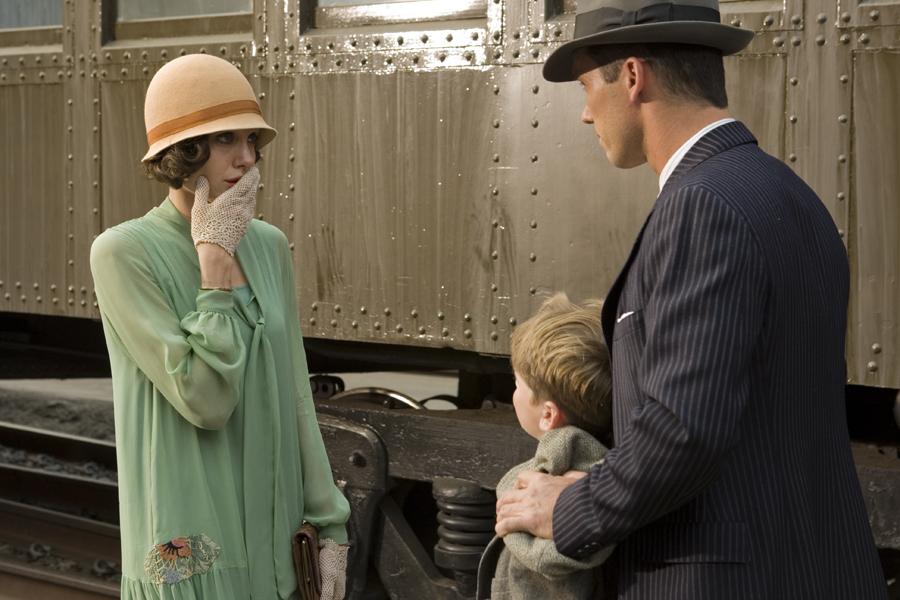I was conflicted about seeing this film. I almost always like Clint Eastwood‘s directing style, but I almost never like Angelina Jolie. Eastwood’s view through the camera lens is clean and pure. It is like looking up from a book when you have been reading all day, and suddenly all the words that have been swimming in front of your eyes are gone. Jolie, in most of her films it seems, is either a caricature or empty (See my review of Wanted). But Eastwood manages to sand down the rough edges. In fact, even-handedness is the word of the day with the film.
Changeling begins in 1920s Los Angeles, an idyllic, bygone existence. Mrs. Collins is a single mother of a nine-year old boy, Walter. The two have carved out a simple, if predictable, life together. It then chronicles the horrific serial killer that is uncovered while investigating the child’s disappearance. His mother (Jolie) is adamant that they boy returned to her by the insistent LAPD is not her son. Afraid to be further reviled and embarrassed the force seeks to subvert Mrs. Collins’ protestations — first by threat, then by committing her to an insane asylum. Using the excuse of her delicate femininity and the stress of losing her only son as an excuse, they inflict rigorous physical and emotional torture. Their object is either to break her will, or keep her in the sanitarium — either way, she is prevented from speaking to the press or being believed. Finally, an astute (and not corrupt) detective takes an interest in the case and the pieces start to make sense.
Eastwood’s steady direction makes this film work. It easily could have become a vehement, man-hating manifesto. Instead it lands as an anti-corruption treatise and interesting historical chronicle of a story lost to time. It encourages the spectator to rethink what is “crazy”, what we believe in ourselves and of others. It encourages the audience not to give up. Although she is “saved” by a man, it is not because he is a male figure that he helps. He is a character who believes in fairness. And, in fact, she was just as tormented by women in her stay at the asylum. It is the detective’s fairness, and Eastwood’s attempt at fairness, that allows the film to stand as a fully-explored tale. It also deftly handles what is an awful series of murders. Eastwood puts across the terror of his victims and the helplessness of their situation without making a gory mess of things.
As usual, Eastwood’s art direction brings to life a Los Angeles of the past — one that is so important to understanding the context of the story (the color choices alone warrants an article). It also features a typically-simple musical motif. Changeling is not ground-breaking, or even surprising, but it is solid filmmaking with an interesting story to tell — which is hard enough to achieve anymore.
Also starring Jeffery Donovan, John Malkovich, and Michael Kelly.

